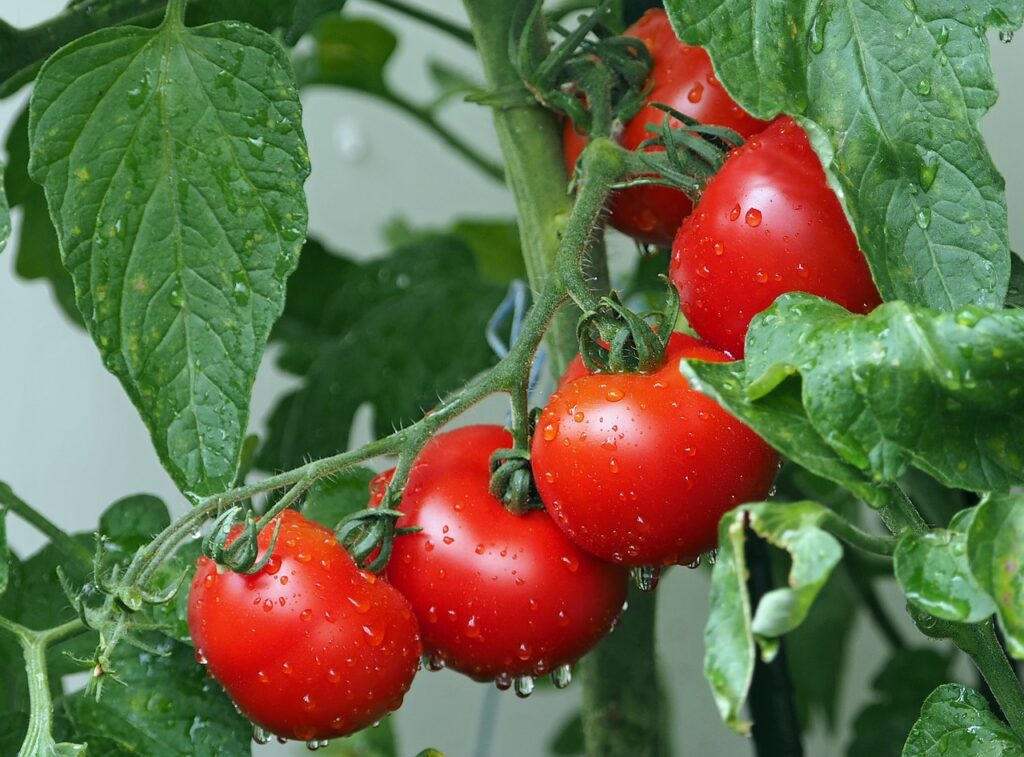In recent years, summer heat has repeatedly broken records. This year is no exception, with multiple regions experiencing the highest temperatures ever recorded, causing severe damage to crops and home gardens alike. Leaves scorch, flowers drop, and fruit growth halts—these issues are not just occasional setbacks but serious threats to yield and quality. Many are now searching for effective preventive measures. One method gaining attention, and popular among past Chloroquest articles, is low-concentration ethanol spraying to enhance plant heat tolerance. In this article, we dive into why this method works, the experimental conditions tested, and how it can be applied in the field, backed by the latest research findings.
*I have previously summarized RIKEN’s research. Please also refer to this.

Background and Experimental Design – “Saving Crops with the Power of Alcohol”
Ethanol (EtOH) application to improve stress tolerance is a form of chemical priming. This strategy involves giving plants a low-level stimulus or compound before stress events to “switch on” defense mechanisms in advance.
A representative study by RIKEN used tomato ‘Micro-Tom’ and applied 20 mM ethanol (≈1.17 mL/L) for 3–6 days via root absorption. Plants were then exposed to severe heat at 50°C for 2.5–4 hours. Compared to untreated controls, treated plants showed reduced leaf damage and significant increases in fruit set and weight.

Case Studies and Evaluation Approaches
Beyond tomatoes, ethanol priming has been tested in Arabidopsis, rice, and wheat, showing common effects:
- Activation of the Unfolded Protein Response (UPR) – Prevents protein denaturation under heat by increasing protective proteins such as BiP and HSPs.
- Changes in Sugar Metabolism – Ethanol is metabolized into acetate and sugars, increasing trehalose and soluble sugars for osmotic adjustment and energy supply.
- Activation of Antioxidant Enzymes – Enhances enzymes like CAT and APX to scavenge reactive oxygen species (ROS) produced under heat stress.
Evaluations combine morphological/physiological indicators (green leaf area, shoot dry weight, fruit number, photosynthetic efficiency) with molecular analyses (gene expression, metabolite profiles) to confirm tolerance mechanisms.
Summary of Scientific Findings
Studies show that pre-treatment with 20–50 mM ethanol reduces growth damage under heat stress. In tomatoes, fruit set increases and leaf yellowing/wilting decreases. In Arabidopsis, UPR genes (e.g., bZIP60) are activated. Rice and wheat also show improved drought and salt tolerance. However, higher concentrations (above a few % v/v) can inhibit germination and growth, making careful concentration control essential.
Research-Based Interpretation
Ethanol functions not just as a metabolic substrate but as a signal molecule that fine-tunes plant stress response networks. UPR activation strengthens protein quality control, sugar/acetate pathways boost osmotic and energy balance, and antioxidant systems pre-activate to prevent ROS surges. Together, these mechanisms maintain photosynthesis and metabolism under stress. Effects vary by species, variety, and growth stage, so field use requires small-scale trials to optimize concentration, method, and timing.
Practical Application – The Chloroquest Perspective
Ethanol is a low-toxicity substance widely used in food and medicine, easy to handle and source. For home gardens, applying ~20 mM (≈1 mL/L) ethanol solution to the root zone 3–5 days before a heatwave is practical. Foliar sprays can be combined with surfactants (e.g., Tween-20 at 0.2%, adjustable to 0.05–0.2% based on crop/material) for better coverage. For farmers, ethanol priming during greenhouse hot periods or seedling stages is promising, and integration into existing irrigation systems minimizes labor.
Conclusion and Outlook – Plant Hack!
Ethanol spraying is a cost-effective, low-risk plant hack for boosting heat tolerance. Future research directions:
- Mapping optimal conditions by crop and variety
- Testing synergy with other priming agents
- Field-scale economic assessments
- Adapting for combined stresses (heat + drought, etc.)
In an era of chronic heat, delivering such science-based solutions quickly to the field is vital. “Turning lab discoveries into field weapons” is a step toward securing the future of agriculture.

References
- Todaka, D. et al. (2024). Application of ethanol alleviates heat damage to leaf growth and yield in tomato. Frontiers in Plant Science, 15:1325365. https://doi.org/10.3389/fpls.2024.1325365
- Matsui, A. et al. (2022). Ethanol induces heat tolerance in plants by stimulating unfolded protein response. Plant Molecular Biology, 110(1–2), 131–145. https://doi.org/10.1007/s11103-022-01291-8
- Nguyen, H.M. et al. (2017). Ethanol Enhances High-Salinity Stress Tolerance by Detoxifying Reactive Oxygen Species in Arabidopsis thaliana and Rice. Frontiers in Plant Science, 8, 1001. https://doi.org/10.3389/fpls.2017.01001
- RIKEN CSRS Press Release (2024-02-19). Ethanol increases high temperature tolerance in tomato plants. https://csrs.riken.jp/en/topics/press/press20240219.html
- Das, A.K. et al. (2022). Ethanol Treatment Enhances Physiological and Biochemical Responses to Mitigate Saline Toxicity in Soybean. Plants, 11(3), 272. https://doi.org/10.3390/plants11030272




コメント